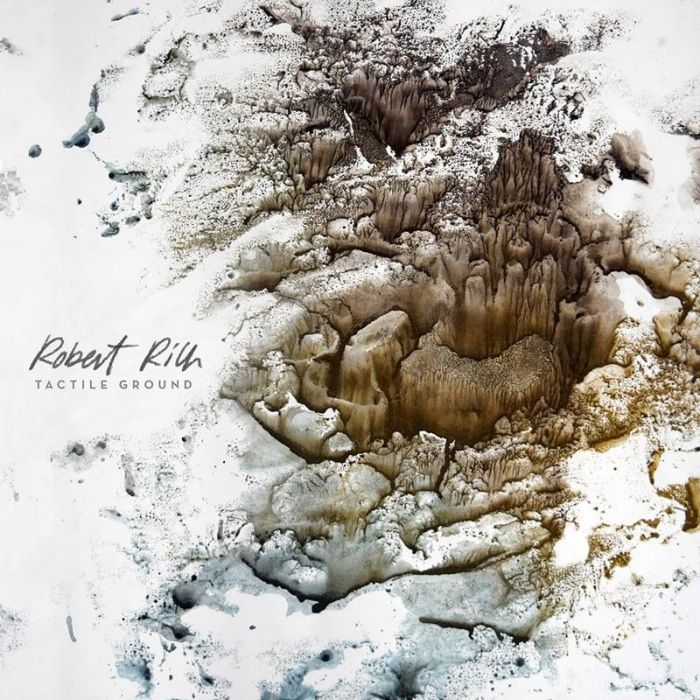Tactile Ground Is Robert Rich at His Most Introspective, Demanding, and Sublime (Review)

My first exposure to Robert Rich was his 1994 album, Propagation, which I found in the “New Age” section of the record store. While the “New Age” section has often been the dumping ground for ambient music — since all drift-y, atmospheric music sounds alike to some ears — there was something New Age-y about Propagation, with its themes of life and rebirth, seamless blend of electronic and organic sounds, and exotic instrumentation (e.g., guzheng, kendang, udu).
Tactile Ground, however, defies any such easy categorization. Sure, it’s as drift-y and atmospheric as anything in Rich’s considerable catalog, but it’s a far cry from Propagation’s vibrancy.
Rich’s music has often plumbed the depths, with perhaps the most extreme example being Stalker, his 1995 collaboration with Lustmord. His recent albums have been characterized by a particularly sobering outlook, though, both sonically and thematically. 2016’s What We Left Behind imagined a post-humanity Earth as it heals and flourishes long after we’ve disappeared from its face while 2015’s Filaments was inspired by modern cosmology and “the constant search to understand our place in the vastness.”
But I’d argue that Tactile Ground is Rich at his most introverted and introspective, and given its two-hour length across two discs, possibly at his most demanding. It’s also one of his best albums in years, adopting the same exacting aesthetic as recent releases but surpassing them all in scope and execution — and given Rich’s prolific output, that’s saying something.
While a lot of ambient music can be treated as sonic wallpaper (à la Brian Eno), that approach does a disservice to this album. “The Sentience of Touch“ ‘s elegant piano and string arrangements; the ghostly synth sounds, keening lap steel, and organic chatter filtering through “A Skein for Skin”; the sparse percussion and soft flute sounds evoking ancient countrysides on “The Abiding Wheel” — these elements may sound unassuming enough, but they do not make for relaxing background music. Contemplative and thoughtful though it may be, Tactile Ground is not an album to put on when you want to “bliss out” or feel a little “zen.”
That becomes even more apparent as you venture into the album’s second half, which grows darker and more foreboding with each passing minute, be it the subterranean rumblings of “Glassmaker’s Sand” or what sounds like spectral radio transmissions trying to reach you from the depths of space on “Dominion of Microns.” I find the album’s second half a bit too abstract — I tend to return to pieces like “The Sentience of Touch” — but there’s no denying that Rich is a master of his craft throughout the album’s two hours.
For all of its driftiness, nothing feels haphazard or random on Tactile Ground. Each and every sound, tone, and atmospheric feels like it was placed with precision and intention. As a result, a piece like “Tentative Unfolding” may start off discordant and uneven, but it’s all part of an illusory spell woven together from strands of synthesizer and lap steel. By the time it flows seamlessly into the lushly cavernous “Elevations,” you feel like you’ve been pulled into another world of Rich’s own devising, so complete is his command over his sonic palette.
As with previous albums, Tactile Ground is conceptual, inspired by Rich’s own experiences with tactile synesthesia, a phenomenon by which someone feels sound on their skin. How else to explain the album’s intimate nature? Even at its darkest and most abstract, Tactile Ground demands you draw near, lean in, and sit with it for its entirety. For some, that demand will be too great. But those willing to give in may experience something truly sublime.